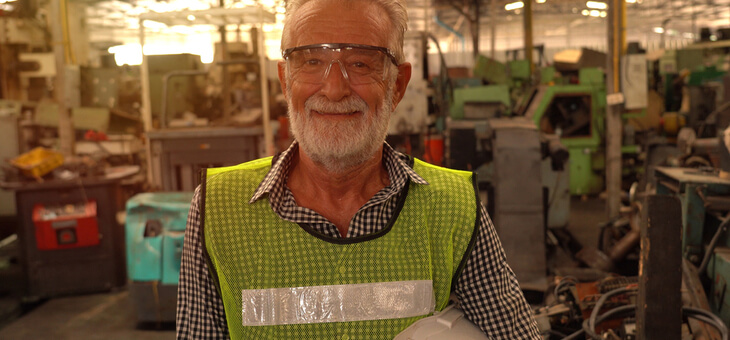Our retirement years are meant to be spent relaxing and doing the things we love. So why are so many older Australians continuing to work after they’ve officially left the labour force?
A working retirement seems like an oxymoron. If you’re working, then how can you be retired? But for an increasing number of Australians, picking up a new job after leaving a career is the right move.
To access your superannuation, retirement is usually a condition of release for your fund if you are aged between 55 and 64. It is possible to return to work but you won’t be able to access the funds in your super account until you meet another condition of release (usually retiring again). If you’re over 65, then you can freely access your super without the need to retire.
If you receive the Age Pension, then there are even government incentives to return to work in the form of reductions in the Age Pension income test.
Read: How the proposed work test changes could change your retirement
There are a few reasons you might want to return to work, and not all of them have to do with money. Here are some of the top reasons for retirees returning to work.
It’s rewarding
Many retirees report losing a sense of meaning or purpose when they leave the workforce. This is especially true if the person derived a large part of their identity and personality from their job. Some even report a type of ‘retirement depression’.
Taking on a new job can be one way to tackle this depression head-on. Whether the job is in your previous field or a completely new line of work, post-retirement employment can give retirees purpose and a sense of worth.
Funding discretionary expenses
Most reasons to return to work after retirement don’t have anything to do with money – except this one. Often retirees are on a strict budget, even more so if they receive the Age Pension.
Read: Older workers can offset economic impacts of population ageing
Taking on a post-retirement job, even part-time, can be a great way to earn some extra pocket money to do the things you want. This way you won’t be dipping into your retirement fund and you can keep enjoying life to its fullest.
To socialise
Let’s face it, sometimes retirement can be lonely. As well as getting professional fulfilment from our careers, they were also places filled with other adults to interact with. Many retirees made life-long friendships during their working lives and losing that daily interaction can be hard for some.
Joining a club, sports team or even just going to a café for coffee regularly and connecting with other patrons are all great ways to scratch the social itch. But a new job can give the kind of day-to-day interaction that many retirees crave.
To learn new skills
There’s a saying about teaching dogs of a certain age new tricks that really should be ignored. Learning new skills is great way to maintain healthy brain function and slow cognitive decline.
Read: Personality predicts how you will spend money in retirement
Taking on a role in a new and unfamiliar field is a great way to force yourself to learn a bunch of new skills all at once. In this way, a post-retirement job can act as a barrier against dementia.
Have you returned to work after retirement? What was your reason for doing so? Let us know in the comments section below.
If you enjoy our content, don’t keep it to yourself. Share our free eNews with your friends and encourage them to sign up.

